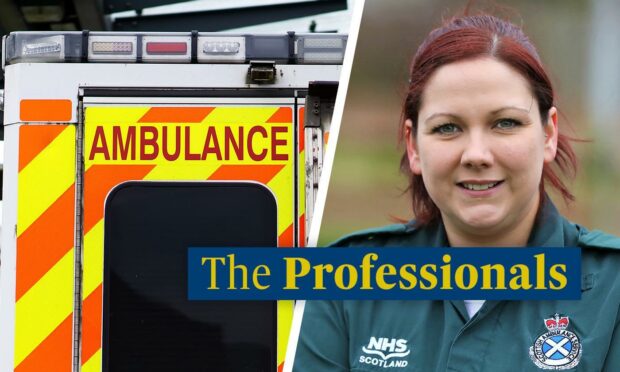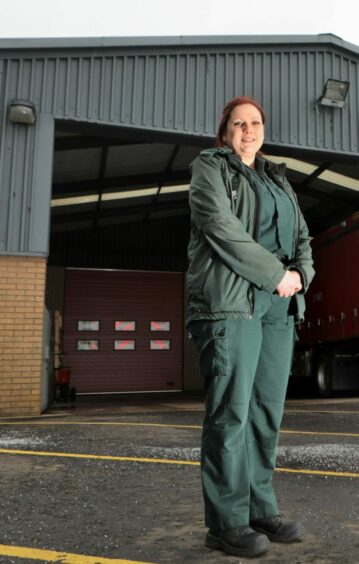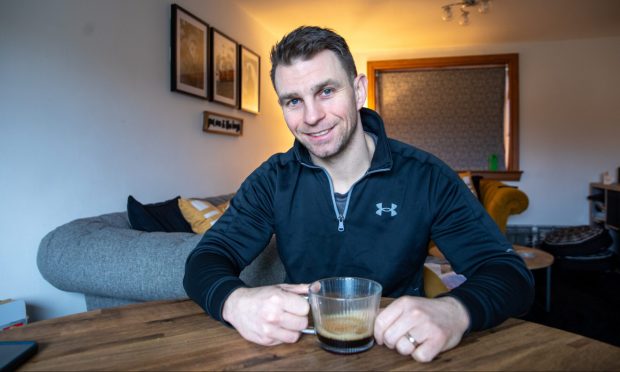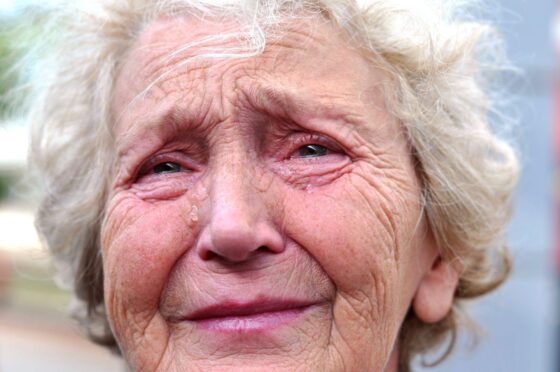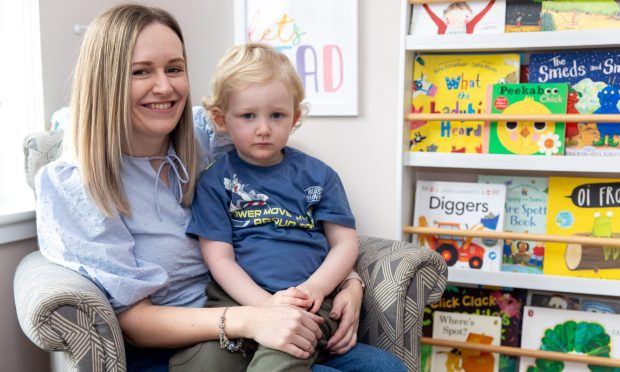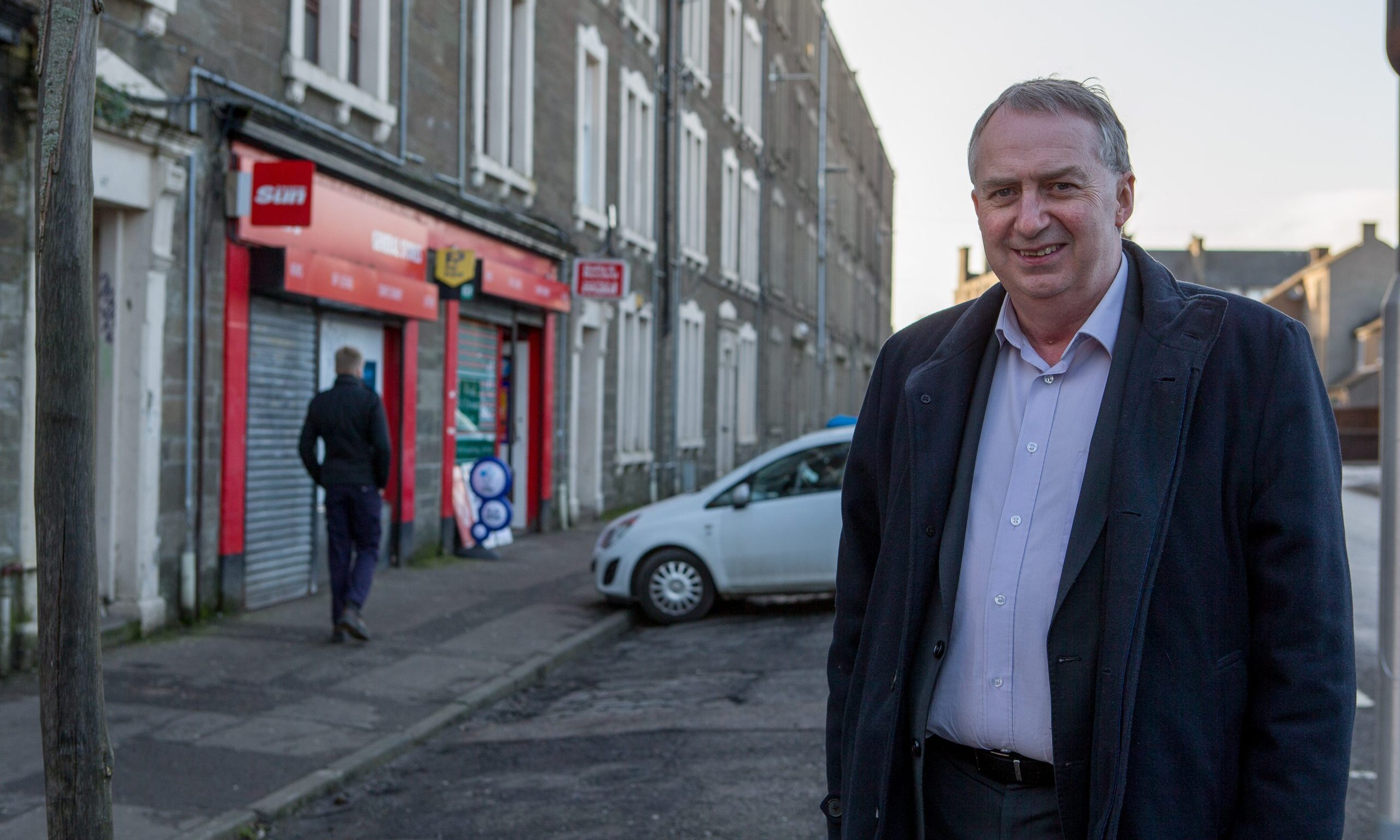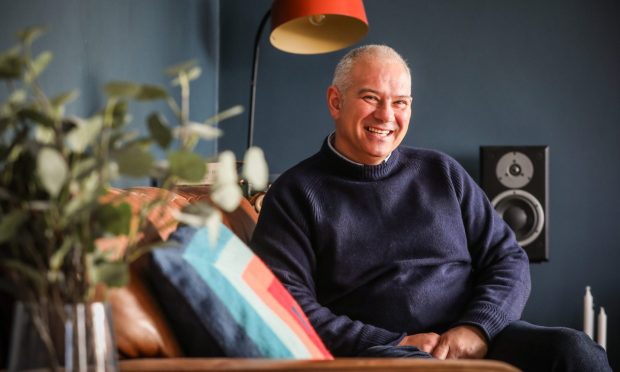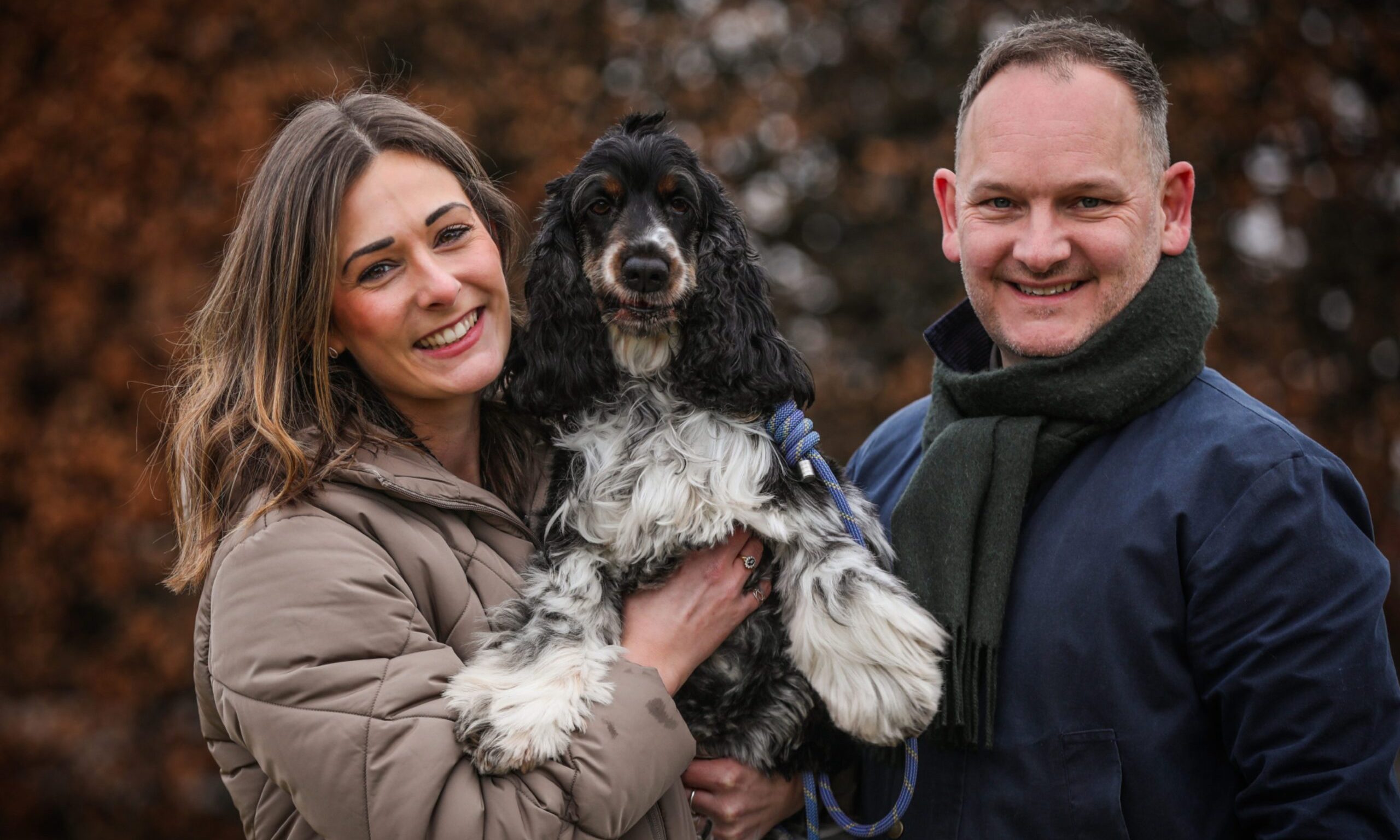Sarah Grassie, 31, from Broughty Ferry, has worked as an ambulance technician for four years, and is based in Arbroath.
Here she tells us about the triumphs and challenges of life on the frontline during a time of great change and challenge for the NHS.
And the very personal reason that drives her passion for caring for others.
Sarah started her training in 2017, having previously worked in the care community for 10 years.
“The work has broadened my knowledge of the communities I work in throughout Tayside,” explains Sarah. “And my confidence in dealing with the public has increased massively.
Thank you letter
“The best moments of my job are when I’m able to provide reassurance to patients and deliver meaningful change for people.
“This might be through medical intervention, or simply by speaking to them.
“One job that left an impact on me was treating a patient who was suffering from a heart attack.
“We provided medical treatment, which kept the patient alive and allowed for further treatment at hospital.
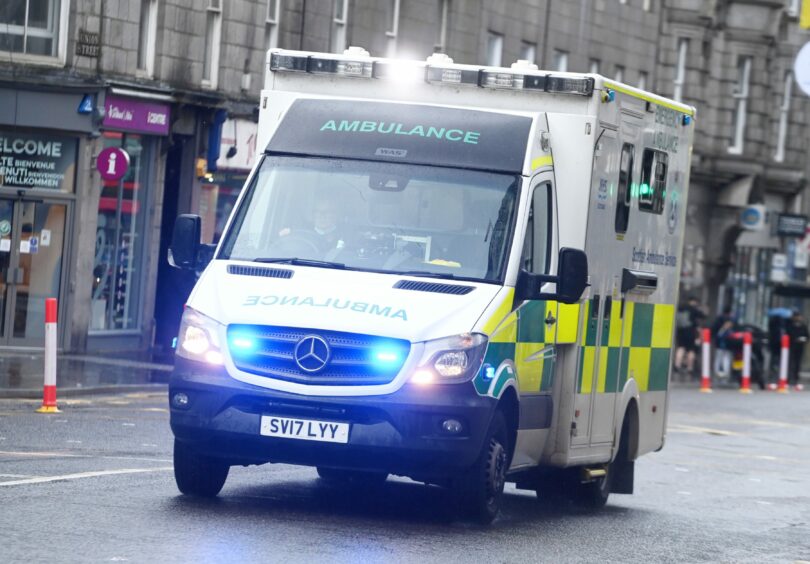
“I received a thank you letter from the patient’s family. It means a lot to know that our work is appreciated and our actions provided a positive outcome.”
Working through the challenges of the pandemic were not easy as the Service continues to be stretched by competing demands.
Pressures of the pandemic
“A typical day consists of either a 12-hour day or night shift.
“Most days, we are out of the station as soon as we book on shift. Generally, Ambulance Control try their hardest to accommodate us in terms of getting a break.
“But, if a high priority incident comes in, it takes precedence. Quite often we do get delayed on shift,” Sarah explains.
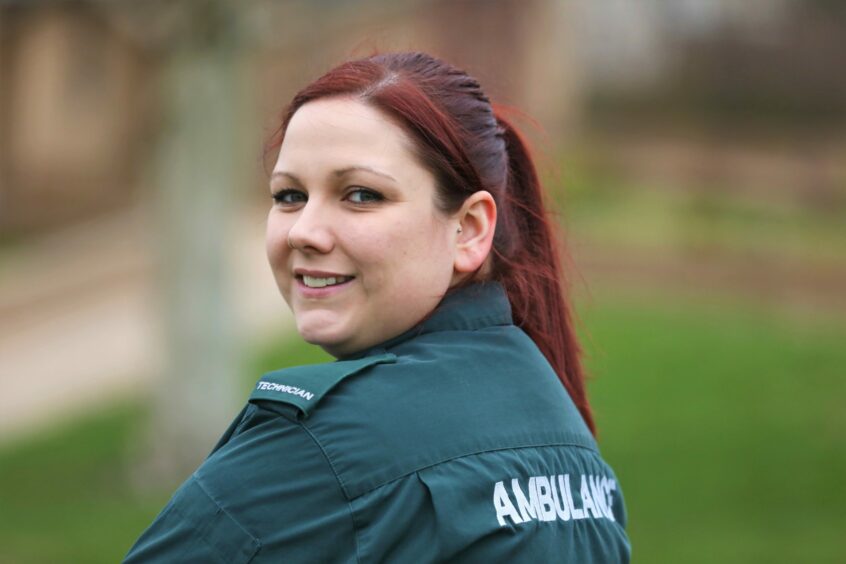
Sarah’s partner also works in the emergency services and, at the start of the pandemic, the couple didn’t want to risk spreading the virus through their children on to family providing childcare.
“Our children were aged six and 10 months old at the start,” she says.
“So we had to stay away from them for six weeks until we fully understood the impact of the pandemic and implemented our own measures to prevent any unnecessary transmission.”
‘Putting life in perspective’
Family is at the heart of why Sarah enjoys caring for others.
“This job helps to put life into perspective as we often deal with tragic incidents. And I don’t take family for granted now,” she explains.
“I had always thought about doing this. But after losing my younger brother very suddenly in 2016, I realised life is short and I should go after my dreams.
“I was working in care before Adam died but it’s certainly made me more aware of mental health.
“And I can empathise with families who have been through similar.”
Of all the difficulties facing the health service, Sarah says the rise in mental health incidents and people calling emergency services unnecessarily are the toughest.
“One of the biggest challenges of the job for me is the rise in mental health incidents that we deal with. It’s challenging to attend someone who is in mental health crisis and at their lowest point.
“But the public can help ease the pressure on the Service,” Sarah says.
Do you feel you could do with some breathing space, time to come together with your colleagues and share what's on your minds? Come to one of the #SpacesForListening sessions, open to all health and social care colleagues. Dates now available up until May 💙 pic.twitter.com/9Awpgql3HW
— Scottish Ambulance (@Scotambservice) March 9, 2022
“Always call 999 if it’s life-threatening and requires critical treatment. However, we often get calls that can be dealt with by a patient’s GP or treated with over the counter medications.
“These pull valuable resources away from incidents where we’re needed most. So I’d advise calling NHS24 on 111, GPs or local pharmacists for anything that doesn’t require emergency care.”
